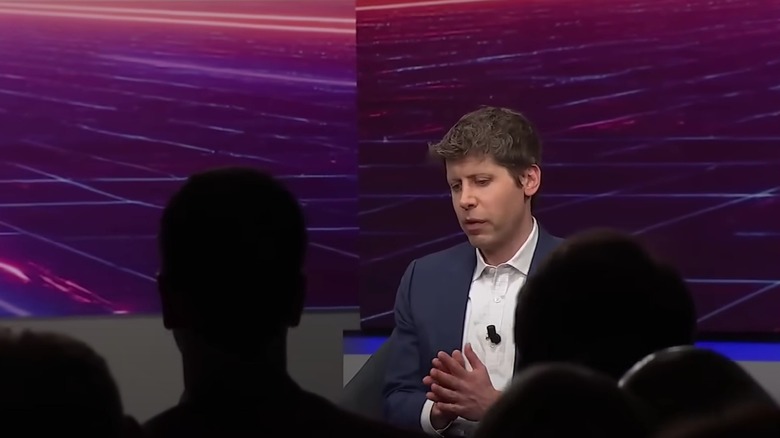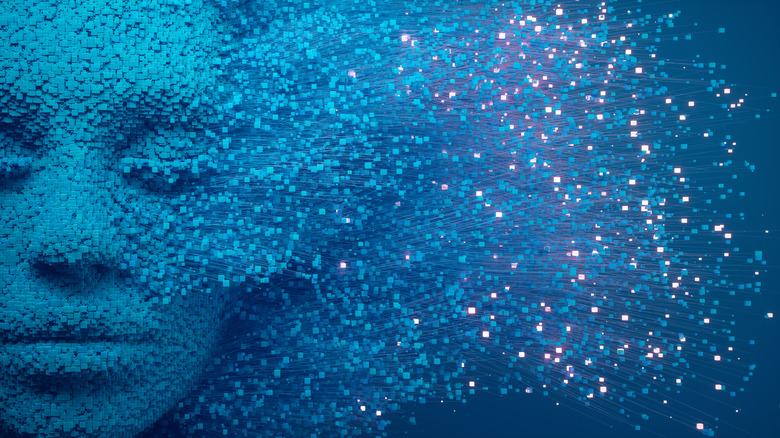OpenAI CEO Questions Whether This Is The Ultimate Test For True AGI
AI tools like ChatGPT and Google Gemini have rapidly transformed how we engage in the information age. While the technology can be incredibly useful, AI can also be used in weird and even destructive ways. But according to the CEO of OpenAI, the company that gave us ChatGPT, artificial intelligence may help us solve one of the greatest unsolved mysteries in physics and, in doing so, ascend to a higher level of computer intelligence called Artificial General Intelligence (AGI).
At a fireside-chat-style meeting between OpenAI CEO Sam Altman and David Deutsch on September 24th, 2025, Altman suggested that language models like GPT may be able to solve the century-long mystery of quantum gravity in just a few years. It was an apropos topic of conversation for his guest. David Deutsch, widely considered the father of quantum computing, has dedicated much of his life to understanding the potential of artificial intelligence. His seminal work in the 1980s showed how quantum computing could be used as a Turing machine, the theoretical limit of computation.
Deutsch's work straddles the line between philosophy and physics. A big concept in his field surrounds the implications of artificial general intelligence. Essentially, it's the theoretical next stage in the evolution of AI; a machine with AGI would have the same cognitive abilities as human beings, such as applying knowledge learned in one domain and using it in another. In other words, AGI marks the philosophical threshold between an unconscious tool and a machine with consciousness.
So, Altman asked Deutsch the critical question: If GPT were to figure out quantum gravity and explain its thinking, would that mean the language learning model had graduated to the status of AGI? "I think it would, yes," Deutsch responded.
Sam Altman proposed a future AGI test:
if a model like "GPT-8" solved quantum gravity and could explain the reasoning behind its discovery
would that qualify as AGI?
David Deutsch agreed that it would qualify as AGI, making it a potential benchmark pic.twitter.com/X8peVc7gEz
— Haider. (@slow_developer) September 25, 2025
How solving quantum gravity could mean AI consciousness
For physicists, quantum gravity is the biggest missing puzzle piece in the Theory of Everything, a hypothetical model of all four of the universe's fundamental forces. While the other three fundamental forces "fit" in quantum theory, gravity is the outlier — it remains unexplained on the quantum scale. Thus, if future language models can figure out a way to make gravity "fit", it would revolutionize both physics and AI technology.
Most modern AI is based on language learning models (LLMs). They're not apps like Duolingo and its many alternatives; instead, LLMs such as ChatGPT analyze human language patterns to generate the most natural-sounding answers to our questions. Such machines draw from vast data banks — from every Facebook post to every Wikipedia entry — in order to accomplish their tasks. That's why LLMs are sometimes wrong; in the same way humans must compare sources and verify information, LLMs are limited by the accuracy of their sources and the power and time they have to process the data provided to them.
But LLMs learn from their mistakes. Over time, their responses become more human-sounding and more factual. This is what gives OpenAI's Deep Research tool greater accuracy, as it is allotted more processing power to critically analyze sources. In that sense, LLMs can follow the scientific method as long as they're provided the correct inputs from users. However, should LLMs become so powerful that they can solve quantum theory on their own, they would have demonstrated the same analytic skills used by human scientists: cross-domain knowledge, common sense, pattern recognition, etc. For Sam Altman and David Deutsch, such an achievement could be a sign that GPT had graduated to a new level of artificial consciousness — that of artificial general intelligence.

